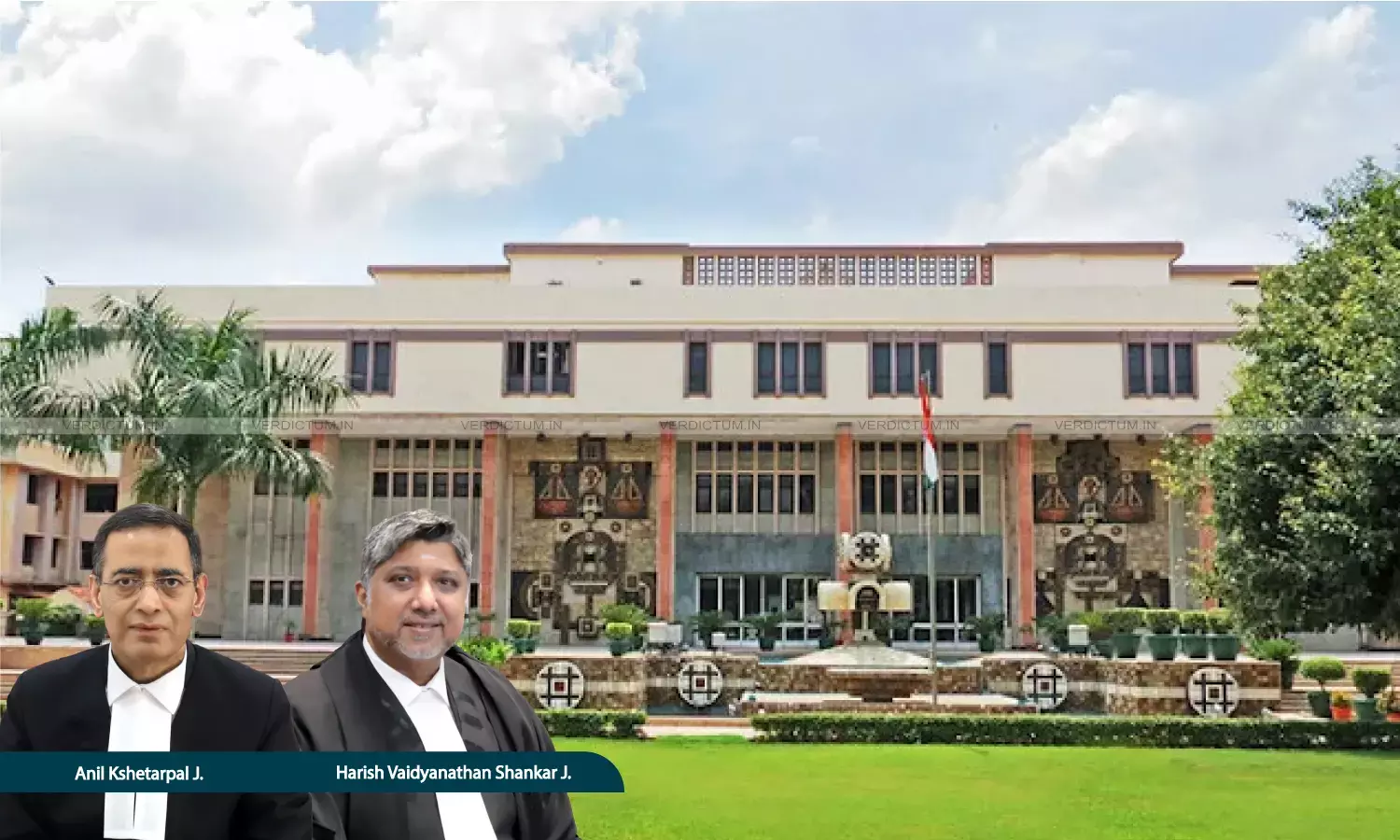Delhi High Court: Presumption Of Valid Hindu Marriage Doesn't Diminish Due To Lack Of Direct Evidence Of 'Saptapadi' Ceremony
The Delhi High Court stated that performance of Saptapadi is not an indispensable requirement in every case to establish a valid marriage.

Justice Anil Kshetarpal and Justice Harish Vaidyanathan Shankar, Delhi High Court
The Delhi High Court has held that presumption of a valid Hindu Marriage doesn't get diminished merely due to lack of direct evidence of 'Saptapadi' Ceremony.
The Court was considering an Appeal filed under Section 19 of the Family Courts Act, 1984 by Appellant-Husband seeking setting aside of an order of the Family Court wherein his suit seeking to declare the marriage with the Respondent-Wife as null and void, on the account that Saptapadi was not performed.
The Division Bench of Justice Anil Kshetarpal and Justice Harish Vaidyanathan Shankar observed, "....The presumption of a valid marriage is not diminished simply because there is no direct or positive proof of the ceremony of Saptapadi having taken place. On the contrary, if there is even some evidence showing that the parties went through a form of marriage, the presumption becomes stronger."
The Appellant was represented by Advocate Deepak Kumar Sharma, while the Respondent was represented by Advocate S.P. Yadav.
Facts of the Case
It was claimed by the Appellant that the Parties exchanged garlands in 2016 and that ceremonies according to applicable custom, including Saptapadi, were never performed. The marriage was duly consummated, and a daughter was born out of the said wedlock.
It was alleged by the Appellant that, though he lived with the Respondent for four months, the marriage was not valid as, at the time of their marriage, no Saptapadi was performed. The Respondent, on the other hand, claimed that she was thrown out of the matrimonial home after a year of marriage.
Counsel for the Appellant contended that the Respondent failed to produce the marriage album; hence, an adverse inference should have been drawn against her. He submitted that the Respondent has failed to prove that Saptapadi at their marriage was performed.
On the other hand, the Counsel for the Respondent submitted that burden lies upon the Appellant to prove that no Saptapadi was performed; however, he miserably failed to discharge this onus.
Reasoning By Court
The Court at the outset pointed out that, notably, the Appellant did not examine the priest, any guest or elderly person to prove the claim that no Saptapadi was performed.
It recalled Section 7 of the Hindu Marriage Act, 1955, which outlines the "Ceremonies for a Hindu Marriage‟, the marriage may be solemnized in accordance with the customary rites and ceremonies of either party.
"Sub-section (1) of Section 7 confers discretion on the parties to solemnise marriage as per the customs and ceremonies of either party, without mandating any particular ceremony. Thus, performance of Saptapadi is not an indispensable requirement in every case to establish a valid marriage. Sub-section (2) only clarifies that where Saptapadi is a part of the customary rites performed, the marriage attains completeness and binding force with the seventh step", the Court observed.
Stressing that a heavy burden lay on the Appellant to prove that the essential ceremony of Saptapadi was not performed, the Court pointed out that the Appellant did not examine any witness to substantiate this plea.
"It is admitted that the parties have been residing together, although the date of separation is disputed, and a child was born to the parties. When a child is born to such a couple, there arises a strong presumption that the marriage is legitimate.......The burden of proof being on the Appellant to establish that no Saptapadi was performed, an adverse inference cannot be drawn against the Respondent for not producing the marriage album to demonstrate the ceremonies. Even assuming such an album were produced, it cannot conclusively establish whether Saptapadi was performed", the Court observed.
The Appeal was accordingly dismissed.
Cause Title: Vinod Kumar vs. Ms. Geeta (2025:DHC:7620-DB)
Appearances:
Petitioner- Advocate Deepak Kumar Sharma
Respondent- Advocate S.P. Yadav, Advocate Deepak Kumar
Click here to read/ download Order

